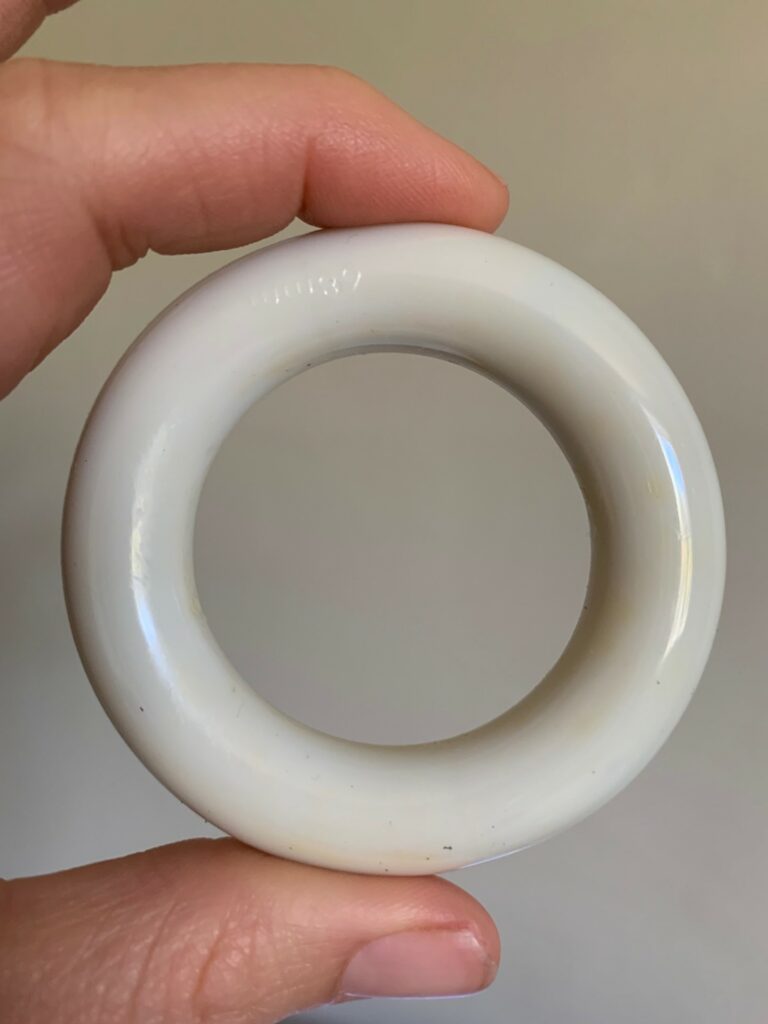Shaping the future for women with prolapse
Cambridge physiotherapist Claire Brown believes a physiotherapist-led pessary service for women with prolapse could be life-changing – and has embarked on a year-long research fellowship as a first step to investigating this.
Pelvic floor dysfunction is a common and distressing condition which can affect all adults but particularly women who have had children.
Symptoms include bladder and bowel problems, pelvic organ prolapse (where organs slip down from their normal position into the vagina) and pain, affecting patients’ quality of life and limiting their life choices.
Claire, a clinical specialist pelvic health physiotherapist at Addenbrooke’s, said: “As a physio I work closely with my specialist network group, Pelvic Obstetric and Gynaecological Physiotherapy (POGP), and three years ago we worked as part of a multi-disciplinary team to launch clinical guidelines for best practice in using vaginal pessaries for prolapse.
“These are simple devices that you pop inside the vagina to support the internal walls and reduce the symptoms of a vaginal prolapse.

A vaginal pessary is a mechanical device (not a hormonal pessary) inserted inside a vagina to relieve prolapse symptoms. There are many different types, materials and sizes of pessaries. This is a ring pessary.
“But the guidelines were not backed up by sufficient evidence to show pessaries were effective in the younger age groups we wanted to target, which may explain why they haven’t been widely adopted.
“That’s incredibly frustrating for us as clinicians, and even more for the women with prolapses because this treatment could work.”
So Claire is now on a mission to collect the evidence needed to convince health practitioners to adopt clinical guidelines for vaginal pessaries for younger women; this autumn she started a full-time research fellowship, during which she will conduct qualitative interviews with women patients who have vaginal prolapse and with the GPs, nurses and physiotherapists who look after them.
The research is funded by Addenbrooke’s Charitable Trust and the Evelyn Trust, and facilitated through the NIHR Cambridge BRC’s Training and Professional Development team.
Claire said: “This will provide the pilot data that I need for my research, including finding out what makes access to treatment easier – and harder?
“Another key part of my research will be forming a PPI steering group, this will be invaluable because the direction we take will be steered by members’ direct experience of prolapse treatment – and how easy or difficult it was to access.
Getting the evidence
Claire wants to concentrate on collecting the data – or evidence – to show that pessaries can help women with prolapses.
She said: “The women who could benefit aren’t getting the treatments, partly because doctors aren’t offering pessaries to women because there is an age bias.
“Most of pessary research is conducted in the older population, however childbirth is one of the biggest risk factors for developing a prolapse.
“But clinically, pessaries work, but we need the hard evidence to back this up, and to show pessaries are acceptable to younger women as a treatment option.”
Claire has a few simple words of advice to others thinking about working in research: “Do it – because if you don’t follow your passions, you’ll regret it. Then keep going!”
What’s next for Claire?
“I plan to apply for the Doctoral Clinical and Practitioner Academic Fellowship (DCAF) scheme, which will enable me to undertake a PhD by research.
“This is funded by NHS England and NIHR, and if successful I will spend approximately 80% on my research and around 20% in clinical practice.
“Thanks to NIHR Cambridge BRC which enabled this research, I will have pilot data and more experience in conducting my own research to underpin my application.
“It’s another fantastic opportunity for me personally but even more, I hope, for the women who will benefit from service improvements as a result of the research.”
- This November NIHR is launching its Shape the Future autumn campaign, to celebrate the work and impact of the NHS research workforce. It encourages researchers to learn more about research, explore research careers and how to add research to their practice, learning and development.
- If you’re a healthcare proressional in the NHS and are inspired by Claire’s story and are interested in finding out more about pursuing a career in research, visit our Training & Professional Development area on our website for training opportunities and contacts.



